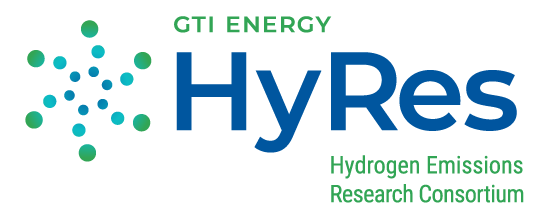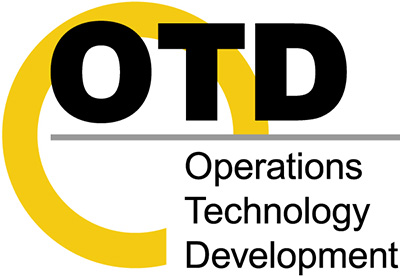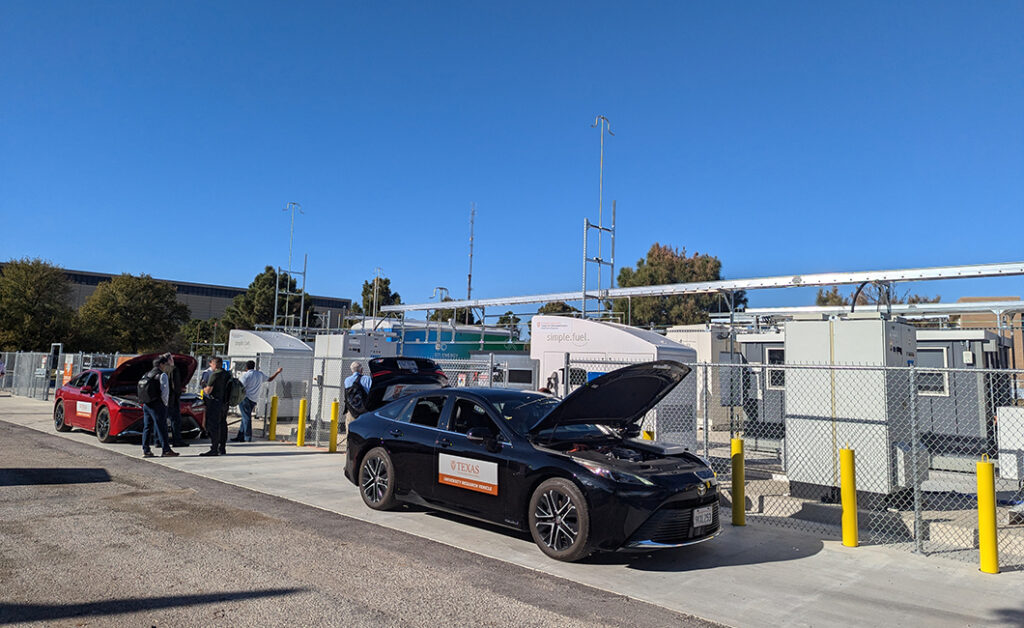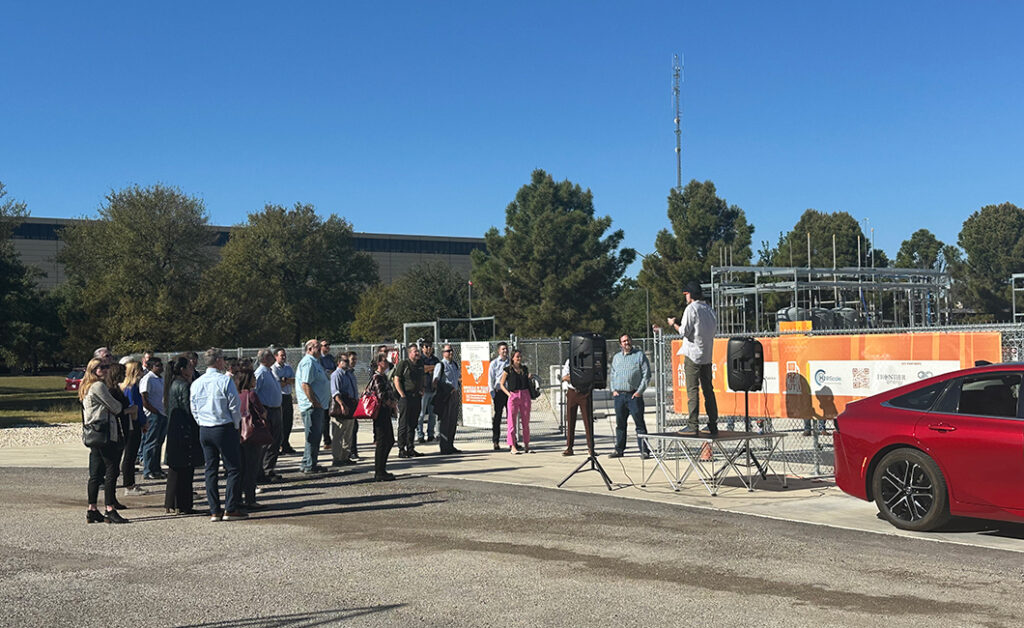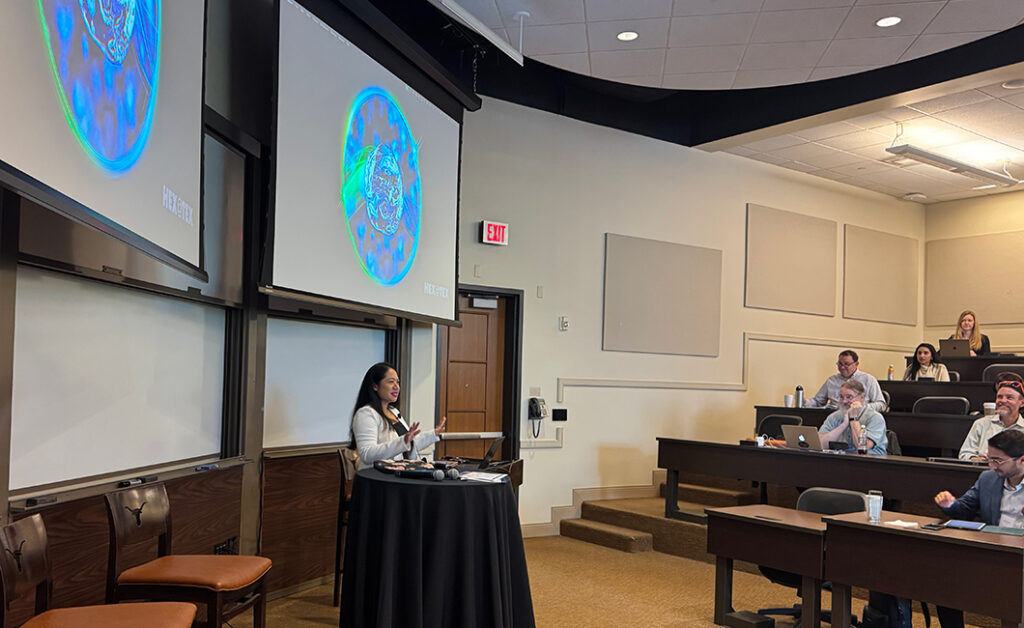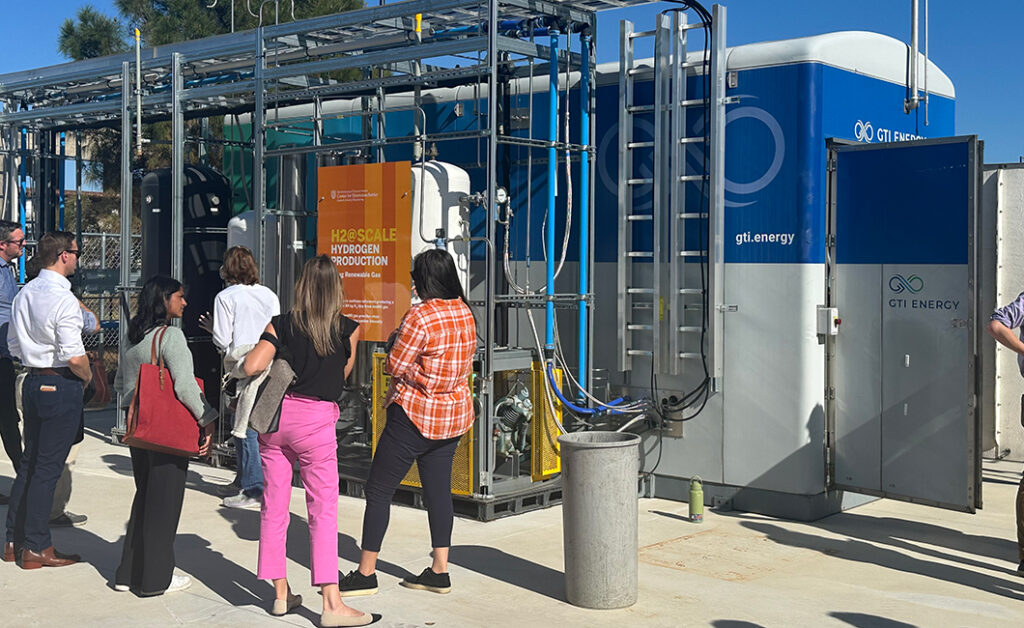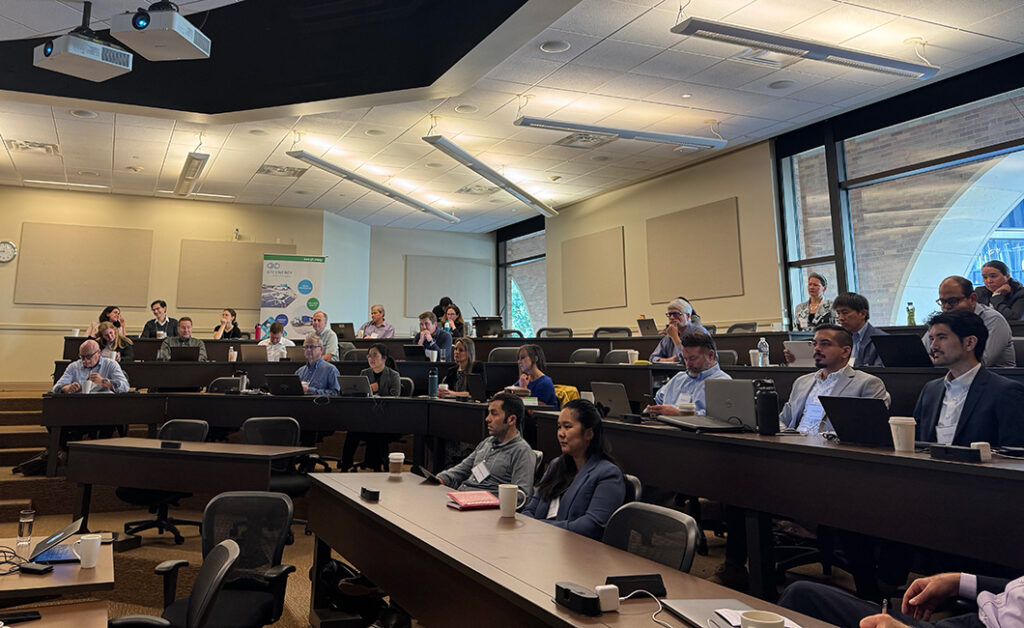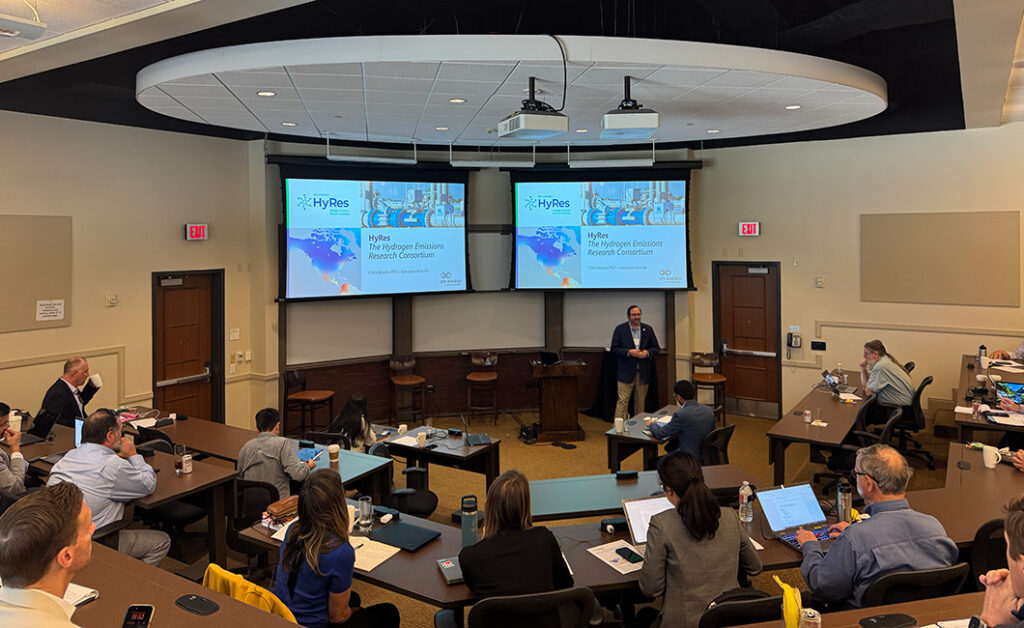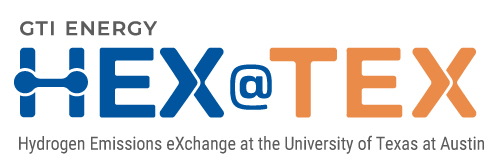
September 30 - October 1, 2025 | Austin, Texas
HEX@TEX is back — bigger and better than before! Open to all, the annual Hydrogen Emissions eXchange at the University of Texas at Austin is your front-row seat to important emissions discussions playing a pivotal role in the future of the hydrogen industry.
Hosted by GTI Energy’s HyRes and the Webber Energy Group at UT Austin, HEX@TEX brings together hydrogen stakeholders from around the world — including leaders in government, academia, industry, and environmental advocacy — to advance knowledge, share best practices, and drive cutting-edge innovation in hydrogen emissions detection and measurement.
Where
Lil Tex Auditorium (Room 1.122), Commons Conference Center, J. J. Pickle Research Campus, the University of Texas at Austin, Austin, TX
When
Tuesday, September 30, 2025, to Wednesday, October 1, 2025
Registration Deadline
September 17, 2025
Questions
hyres@gti.energy
Why should you attend HEX@TEX 2025
- Network with hydrogen experts and decision-makers from around the world
- Learn about the latest in hydrogen emissions detection technology
- Participate in collaborative sessions to share and gain information on the current state of the hydrogen economy
- Hear first-hand about breakthrough research and case studies
- Tour state-of-the-art energy facilities like H2@Scale at the UT Austin J. J. Pickle Research Campus
- Stay ahead of regulatory and technological trends
- Be part of the movement shaping a low-emissions hydrogen future
Who Should Attend HEX@TEX 2025
- Government agencies and regulators (federal, state, and international)
- Academic researchers and university labs
- Oil & gas industry leaders and innovators
- Natural gas utilities and energy providers
- Hydrogen producers and project developers
- Environmental NGOs and think tanks
- Sensor and monitoring technology companies
- Startups and entrepreneurs in clean energy
- Investors and venture capitalists in hydrogen technologies
- Delegates from industry coalitions
Agenda
Subject to change—please check back for updates
| 9:00 – 10:30 a.m. | Hydrogen ProtoHub Tour |
| 10:30 – 11:00 a.m. | Networking Break |
| 11:00 – 11:45 a.m. | Panel 1: Despite it All, Hydrogen is Still Relevant
|
| 11:45 a.m. – 12:30 p.m. | Panel 2: Current Hydrogen Policy and Strategic Efforts by UT Austin
|
| 12:30 – 1:30 p.m. | Lunch |
| 1:30 – 2:15 p.m. | Panel 3: Laboratory Advancements in Hydrogen Detection
|
| 2:15 – 3:00 p.m. | Panel 4: Real World Hydrogen Emissions Detection and Quantification
|
| 3:00 – 3:30 p.m. | Networking Break |
| 3:30 – 4:15 p.m. | Panel 5: U.S. Hydrogen Industrial Clusters
|
| 4:15 – 5:00 p.m. | Panel 6: Coupling Climate and Atmospheric Chemistry Modeling to Explore Impacts of Hydrogen Emissions
|
| 5:00 – 6:00 p.m. | Reception and Student Poster Session |
| 6:00 – 8:00 p.m. | Dinner |
| 8:00 – 8:30 a.m. | Breakfast |
| 8:30 – 9:15 a.m. | Virtual Panel 7: Global Hydrogen Industrial Clusters
|
| 9:15 – 10:00 a.m. | Virtual Panel 8: International Hydrogen Climate Modelling |
| 10:00 – 10:30 a.m. | Networking Break |
| 10:30 – 11:15 a.m. | Panel 9: The Life Cycle Impact of Hydrogen
|
| 11:15 a.m. – 12:00 p.m. | Panel 10: Geologic H2 & Subsurface H2 Storage
|
| 12:00 – 1:00 p.m. | Lunch |
| 1:00 – 1:45 p.m. | Panel 11: Industrial Sensing Needs
|
| 1:45 – 2:30 p.m. | Panel 12: Commercial Sensor Developers (ARPA-E)
|
| 2:30 – 2:45 p.m. | Closing Remarks |
| 2:45 – 4:00 p.m. | Tour of the Bureau of Economic Geology |
Student Poster Session
Current university students are invited to participate in this exciting opportunity to present your research to a multidisciplinary audience of experts and decision-makers from across the hydrogen landscape. This educational, non-commercial event is focused on advancing innovation in hydrogen emissions detection, measurement, and management.
We welcome posters related to:
- Hydrogen emissions: detection, quantification, mitigation, or modeling
- Broader environmental or societal impacts of hydrogen production and use
- General topics in the hydrogen economy: infrastructure, policy, market development, or technology innovation
Abstract length: 250 words
Submission deadline: September 10, 2025
Applicants will be notified on a rolling basis starting September 1, 2025
Sponsorship Opportunities
Join us in supporting the advancement of hydrogen innovation by becoming a sponsor at HEX@TEX. View our sponsorship opportunities and plan to represent your company and network with leading organizations to build your brand.
Gold Sponsor
HEX@TEX 2024
At the inaugural Hydrogen Emissions eXchange at the University of Texas at Austin (HEX@TEX) event November 13-14, 2024, GTI Energy’s HyRes and the @Webber Energy Group brought together a dynamic group of energy and climate leaders for meaningful discussions on hydrogen emissions, their climate implications, and advancements in emissions sensing technologies.
Experts and stakeholders from around the world shared their insights and expertise for a robust exchange of ideas.

